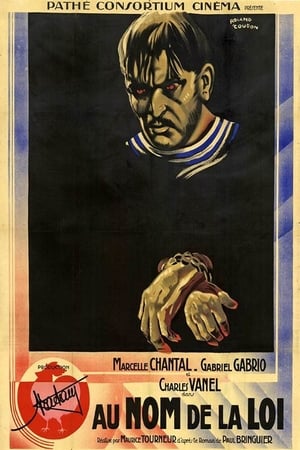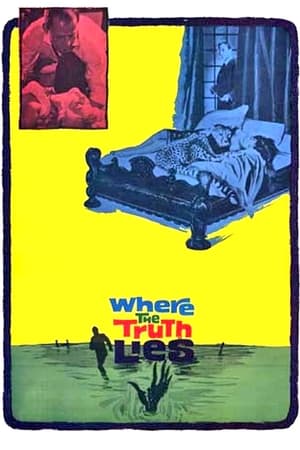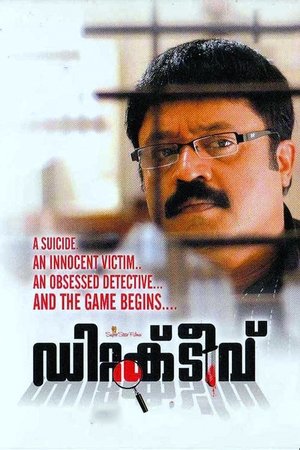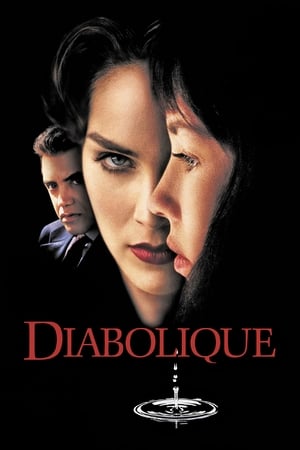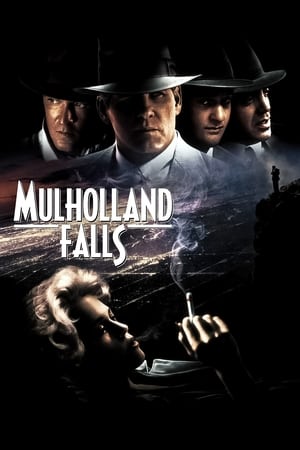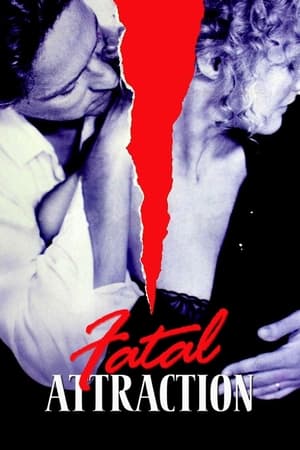Overview
Dolores Claiborne was accused of killing her abusive husband twenty years ago, but the court's findings were inconclusive and she was allowed to walk free. Now she has been accused of killing her employer, Vera Donovan, and this time there is a witness who can place her at the scene of the crime. Things look bad for Dolores when her daughter Selena, a successful Manhattan magazine writer, returns to cover the story.
Reviews
Welcome to Maine; where alcoholism, smoking, and all sorts of behavior the aforementioned are trying to cover up creep up on you like bad filling of gravy. At least, in Stephen King’s universe. True to his (excessive) words, a lot gets stirred up, not all of it gets answered, and characters get knee high in lots of details. Nothing wrong about that, except in this movie the details, and the melodrama that comes with them, tend to bog down what should be bonding of two women over the men that hurt them. What a depressingly masculine mess.
I love a good pulpy environment (hello film noir, which often has a mystery element to it like this movie) but someone how the pacing was just off. I think Kathy Bates does a pretty fantastic job as the the title character. Her daughter Selena though.. I don’t know if it meant more in the book but her talks about the story in Arizona she wants to cover doesn’t really anything interesting to the mix. Maybe it’s to show what bad decisions she’s made after having no family to turn to, but it’s belaboured. We get she’s a emotional mess without it. I also don’t think Jennifer Jason Leigh is all that great in the role, but then again she mostly just sits there to reveal plot points and be something Dolores scarified for. She’s a talking macguffin.
Much more interesting is the relationship between Dolores and Det. Mackey, played gravely by Christopher Plummer. Oh, and that odd looking John C. Riley as his deputy. His face always livens everything up. There’s a bit of destructive perfectionist streak in Mackey, wanting to close the book on the case he never solves to his satisfaction. At some points this runs into cop drama play by play (including a[albeit mercifully short] courtroom scene. Were 90’s Hollywood films required to have those in at least one scene?), but it helped by little details, like throwing a full piss pan at the other.
But whose piss was that? Why the fermenting yellow liquid of Vera, a women we seem to think Dolores killed. We know that’s not true though, any two who exchange such old fashioned zingers (“Dolores, I insist that all women who have hysterics in my drawing room call me by my Christian name.”) and share body fluids can’t hate each other. Maybe with only one, but both? Nay. Besides, it’s much more fun to tag team to doom a alcoholic sexual predator. Her husband; Am I spoiling anything by saying she did kill him? Then it would only be 95% special victims unit, not totally. Might as well cook up all that gravy, a full crock.
This does lead to two defining moments for Dolores. The log back rub to milk cranium massage is pretty good vicious, but mere flower play before the eclipse. After finding Joe has been stealing from her (by proxy of having a penis and the bank therefore believing his bullshit) and abusing a young Selena she plays to stuff him down a well, when everyone is watching the sun black out. This scene is certainly memorable, if not only for the almost baroque visual style (lot of key light) but where she seems to set an olympic record for long jumping, right over the hole. Frankly, this should have been the ending, it’s Dolores best movement, and since she really sets the stage for everyone else to ladle out in, it’s a wonderfully creepy way out. Instead we wait another quarter of a film to pass by.
Anything not Dolores tends to be too congested to be found appetizing. I wage she was more of the center of attention originally, and the other parts were attempting to give the actors more to do, or give more speaking time to the men. This is dubious; King material tends to be overripe as it is, but imitation King (as practiced by director Taylor Hackford and writer Tony Gilroy) is even more stagy. Fine, she helped her daughter, who recognizes it nearly twenty years later, and she amused an entertaining old lady. But the real Dolores, and where Bates is at her best, wrapped all the pain she took from an abusive husband, and leaped over to stomp down someone who hurt her young, like a fierce chicken. A little more strut, a little more pecking, and we would have a fine character study between her and her golden egg. Guess you take what you can get, and go on with your day, especially in Maine.
This one tends to get ignored when people consider the 'classic' Stephen King film adaptations (the first 20 years), but it's very subtle, nuanced, and is basically one of King's finest and more mature works. If it was even possible for Kathy Bates to out-do her Oscar-winning work in 'Misery', she still did so, and nailed it. I'm a huge fan of John C. Reilly, Eric Bogosian (why 'Talk Radio is my favourite Oliver Stone movie and 'Under Siege 2' my favourite Steven Seagal film), David Strathairn, Christopher Plummer and especially, Jennifer Jason Leigh, and the Tony Gilroy script serves them beautifully.
Unfairly, I tend to joke about director Taylor HACKford, but it just may be that he's a more contemporary model of such versatile directors from the past as Norman Jewison and Robert Wise. That's fairly esteemed company--and here, he abides himself quite nicely in some of his best work.
Sometimes being a bitch is all a woman has to hold onto.
Dolores Claiborne is directed by Taylor Hackford and adapted to screenplay by Tony Gilroy from the novel of the same name written by Stephen King. It stars Kathy Bates, Jennifer Jason Leigh, David Strathairn, John C. Riley, Christopher Plummer and Judy Parfitt. Music is scored by Danny Elfman and cinematography by Gabriel Beristain.
Plot sees Leigh as Selena St. George, a big-city reporter who travels to her home town island in Maine when her mother is accused of murdering the elderly woman that she was caring for. Her estranged mother, Dolores (Bates), is also widely suspected to have killed her husband and Selena's father some 20 years earlier, even though that was ruled as an accident. As mother and daughter come together, secrets of the past merge with the harshness of the present.
A terrifically well acted and well mounted drama doing justice to a great book, Dolores Claiborne thrusts family trauma to the front of an on going murder investigation. King adaptations are well known for being very hit and miss, but this is certainly one of the better ones, it sees a shift from standard horror monsters, to monsters of a different kind, the human ones. Played out to a perpetually dank backdrop of rain, grey skies and a sea devoid of beauty, film unfolds to reveal the sadness of one family's roots, where emotional discord hangs heavy, constantly.
The structure is well handled by Hackford, as present day scenes merge into those from the past, giving off a perfectly ghost like feel to the plotting. Plummer's weary detective John Mackey is a bit too underwritten for my liking, and the time afforded the pre-trial debate and inquest is simply not enough to make the required impact once all the revelations come tumbling forward - the latter of which is nearly unforgivable given the film runs at over two hours. However, slight irks aside, this is still great stuff and if only for the trio of lead lady performances then this is a must see for the drama seeking film fan whom wants some intelligent emotional heft in the screenplay. 8/10

 132 min
132 min
 7.3
7.3
 1995
1995
 USA
USA
 MoHA wrote:
MoHA wrote: